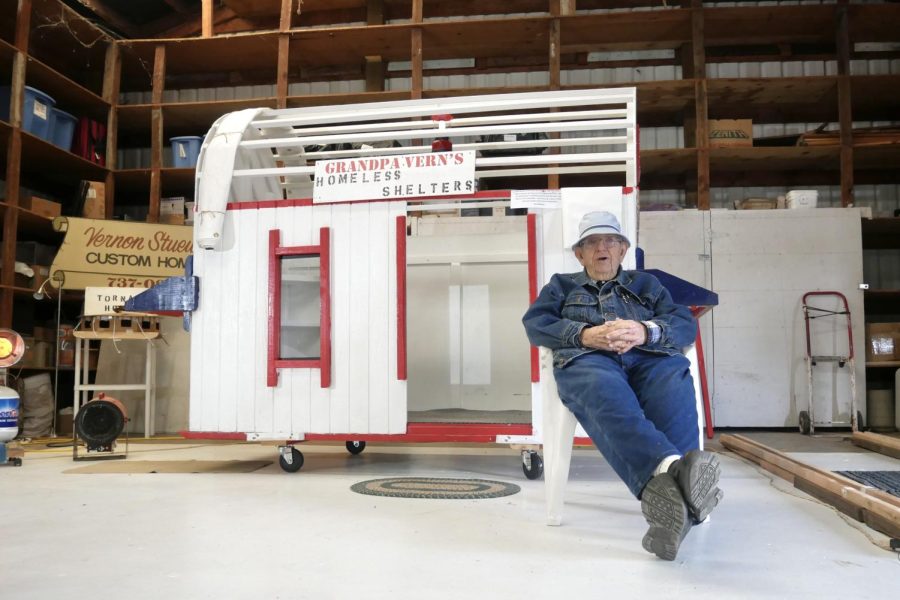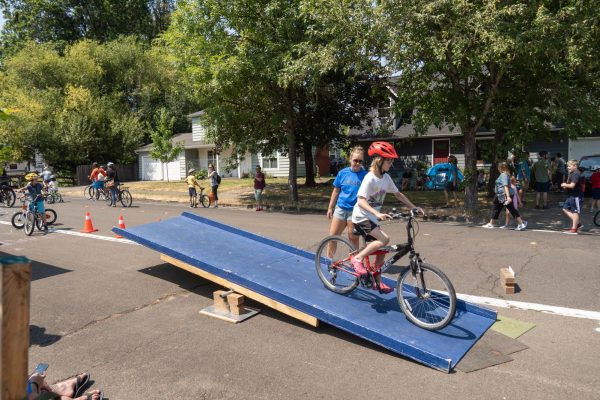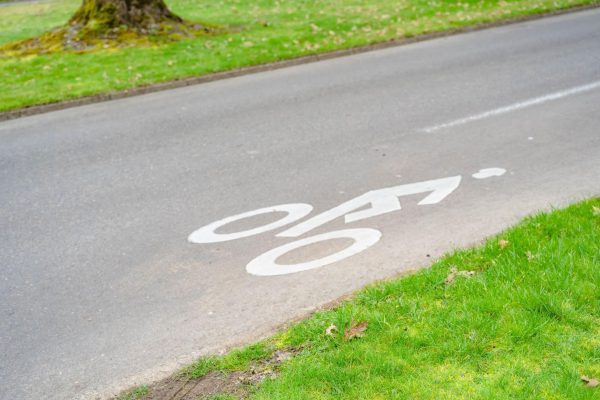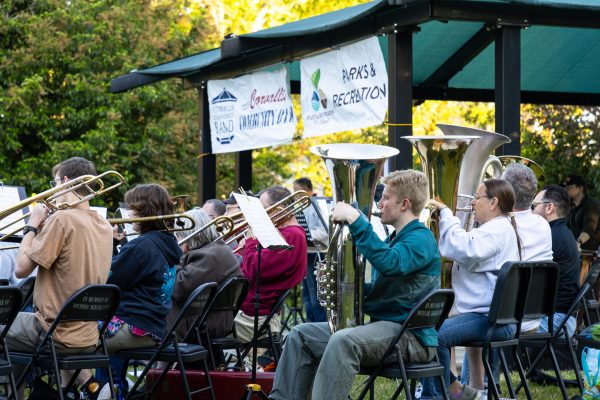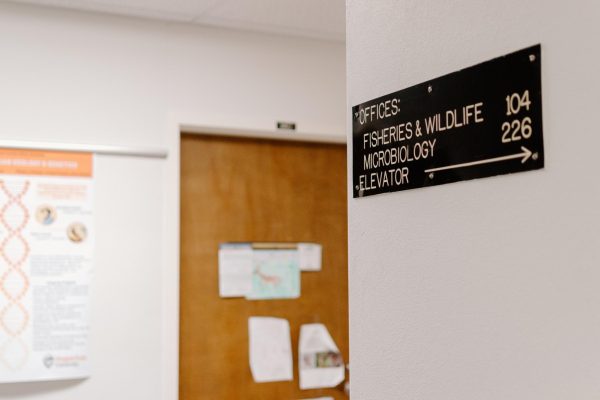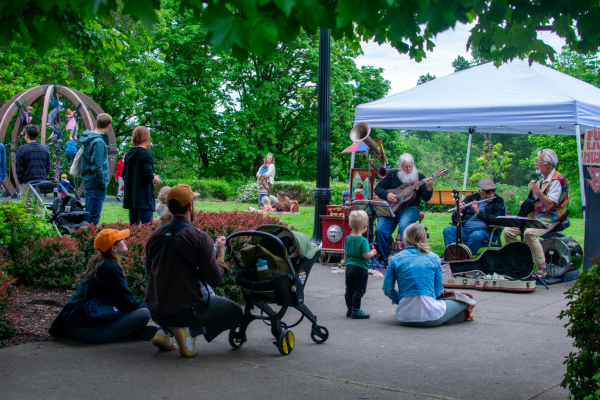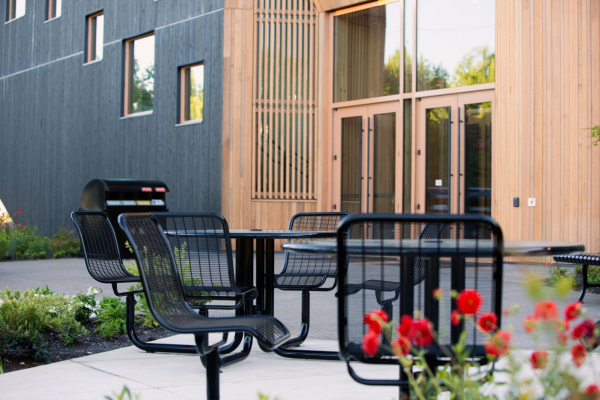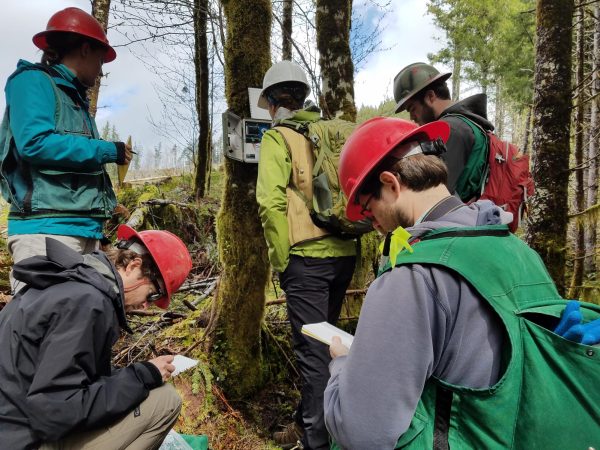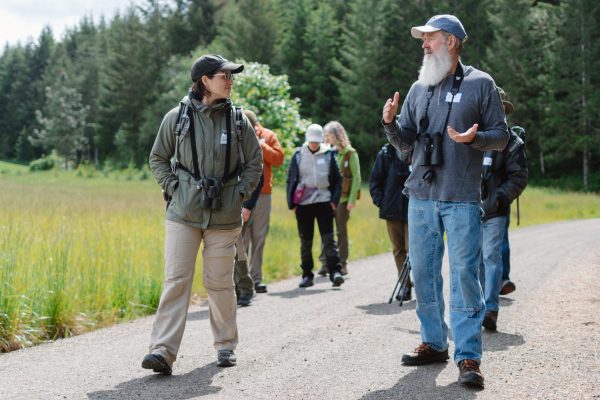Former Corvallis business owner invents prototype mobile shelter to help houseless
Christopher Keiper, Photographer
Longtime Corvallis, Ore. resident Vern Stuewe sits in front of his prototype homeless shelter sits on display in the garage surrounded by tools and other projects.
April 4, 2022
Korean War veteran and retired Corvallis, Ore. business owner Vern Stuewe is giving back to the local houseless community with a mobile shelter prototype.
Stuewe has been living at the same Corvallis address for over 40 years now. According to Stuewe, sweeps of houseless camps performed by the city prompted him to take action by making a mobile shelter prototype for houseless people.
Stuewe said all one needs to do is go into town to see how bad things are for the houseless community in Corvallis.
“It’s terrible the way they’ve shuffled them—the city is shuffling them around,” Stuewe said.
The mobile prototype shelter is 40 inches by 90 inches and red and white, but Stuewe hopes the completed version will be 6 feet by 12 feet, which is slightly larger than the prototype. Both versions include an area for storage in its backside. The completed version will also include space for a table.
Other features the shelter has are meant to help the user, as well as to aid in the production of the shelter itself.
“The idea is to build this on a railroad track,” Stuewe said. “ Right, about 100 feet long so that you assemble it just like you do automobiles…you can build these en masse.”
According to Stuewe, the shelter has a canvas roof that can be rolled up to let the sun in during the summers and unraveled to help insulate the shelter in the winters.
On the experiencesthat helped inform designs for his shelter prototype, Stuewe mentioned his drafting experience from high school as well as his military service as an engineer during the Korean War. Stuewe worked in the engine rooms of two different vessels—the LST-1141, which earned four battle stars, and the LSM-419, which earned five battle stars during the conflict.
According to Stuewe, he hopes to bring his prototype shelter to market so someone else can take the design and run with it. The cost of creating the prototype was about $800 and Stuewe said he has a greed factor like anyone else.
“I’m 90 years old, my wife is in decline and I have to care for her,” Stuewe said. “I’d love to get some money back out of this thing. I do have debts to pay and all that like everybody else.”
The only help Stuewe received in creating this prototype shelter was from a man named Jonah Gates who helped him in the beginning of the process for about a week. The entire project took about four to six months.
“It was quite a project, it wore me out at times but a good wear out,” Stuewe said.
Aside from working on the prototype mobile shelter, Stuewe has also been working on a tornado shelter and enjoying riding his recently completed electric bicycle.
“Electric assist is the best thing ever invented,” Stuewe said. “Especially if you get old and you need some assistance. You can make good time and I can keep up a good pace.”
In a letter he sent to his neighbors and friends, Stuewe stated he would like to turn over authority and ownership of the prototype to any company or organization willing to move forward with his vision.
“This is a start,” Stuewe said. “So that’ll get them out of the weather. [It’s] better than a tent.”












































































































